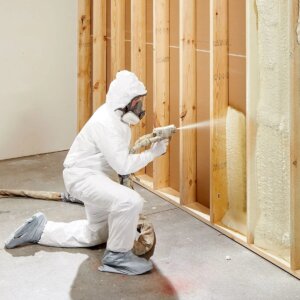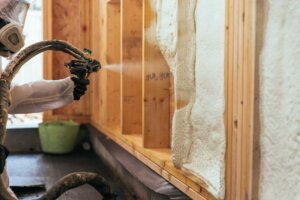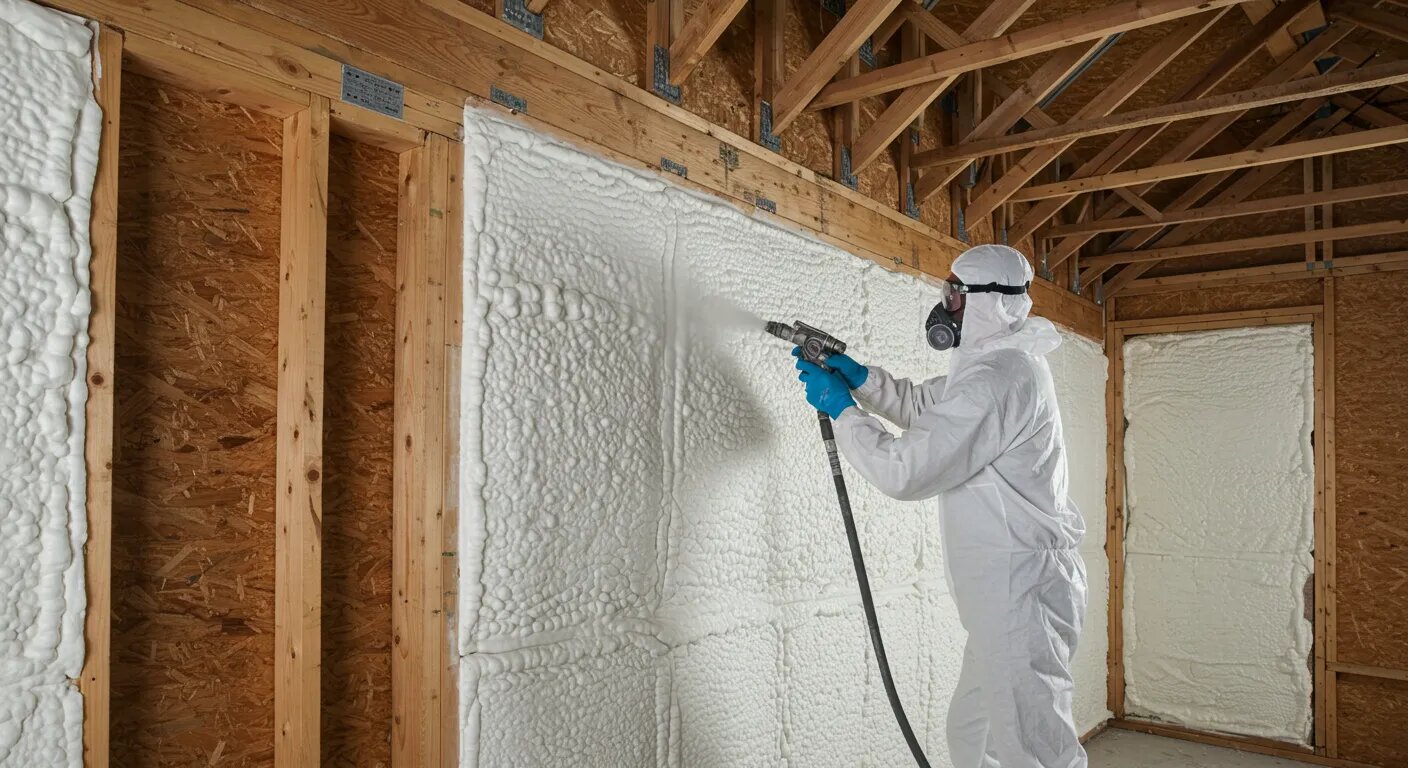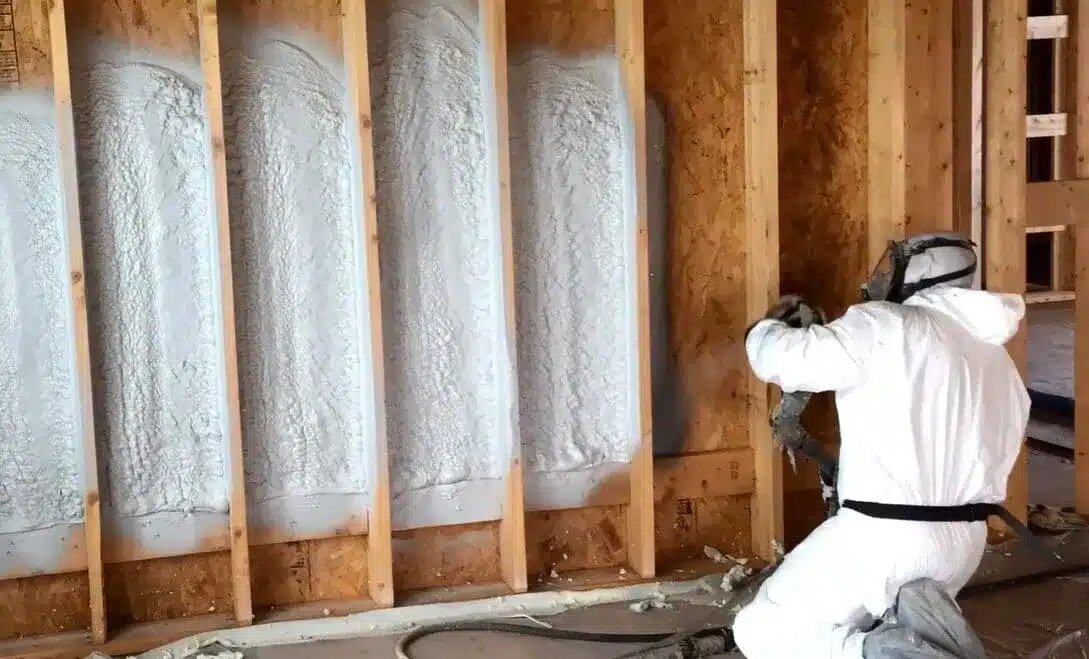
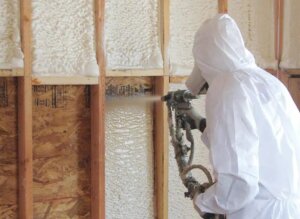
Closed-cell spray foam has become one of the most reliable insulation choices for commercial structures. Beyond its insulating ability, it delivers structural reinforcement, moisture resistance, and air-sealing properties that align with modern building performance standards. This article examines the technical advantages of closed-cell spray foam insulation and how its application benefits commercial buildings over time.
Closed-Cell Spray Foam Explained for Commercial Use
Closed-cell spray foam is a rigid insulation material with high-density properties. Each cell is fully enclosed, giving the foam a compact structure that improves insulation and adds physical durability to the building envelope. In commercial applications, this translates to enhanced energy control, reduced operating costs, and extended structural performance.
How Closed-Cell Spray Foam Works
The foam expands upon application, filling cavities, joints, and gaps. Its dense structure forms an air and moisture barrier while providing a high R-value per inch. The sealed surface improves thermal resistance and reduces uncontrolled airflow.
Why Density Matters in Commercial Buildings
High-density foam not only resists heat transfer but also strengthens walls, roofs, and foundations. This is especially valuable in large commercial facilities that must withstand weather exposure, mechanical loads, and heavy use.
Energy Efficiency Improvements with Closed-Cell Spray Foam
Energy costs represent a significant portion of commercial property expenses. Closed-cell spray foam reduces energy waste by addressing both insulation and air sealing in one application.
R-Value Performance
Closed-cell spray foam delivers one of the highest R-values per inch among insulation options, often exceeding R-6. This allows commercial properties to achieve target energy performance with less thickness compared to other insulation types.
Air and Vapor Control
The material’s closed structure limits air leakage and vapor movement. By acting as an air barrier, it reduces the workload on HVAC systems, helping maintain consistent interior temperatures across large commercial spaces.
Moisture Resistance and Building Protection
Moisture control is essential for protecting commercial structures from deterioration. Closed-cell spray foam offers strong resistance against water intrusion and helps manage vapor transmission.
Moisture Barrier Capabilities
Unlike open-cell foam, closed-cell spray foam resists bulk water and does not absorb significant amounts of moisture. This feature is particularly useful for commercial roofs, basements, and wall assemblies prone to condensation.
Preventing Structural Damage
Moisture entering commercial walls can lead to mold, corrosion, and material breakdown. By sealing gaps and resisting water movement, closed-cell spray foam reduces these risks and extends the life of the building envelope.
Structural Reinforcement Through Closed-Cell Spray Foam
Beyond insulation, closed-cell spray foam enhances the structural strength of commercial buildings. Its rigid form bonds to surfaces and adds durability.
Load-Bearing Enhancement
The foam adheres to wall studs, roof decks, and sheathing, creating a stiffened assembly. This reinforcement helps structures resist wind pressure and impact more effectively than conventional insulation methods.
Longevity and Durability
Because it resists compression, closed-cell foam maintains its shape and performance over decades. Commercial structures benefit from fewer repairs and consistent energy performance long after installation.
Comparison: Closed-Cell Spray Foam vs. Other Commercial Insulation
When selecting insulation for commercial buildings, comparing performance across multiple metrics provides clarity.
Comparison Table: Closed-Cell Spray Foam vs. Alternatives
| Feature | Closed-Cell Spray Foam | Open-Cell Spray Foam | Fiberglass Batts | Rigid Foam Board |
|---|---|---|---|---|
| R-Value per Inch | High (R-6+ per inch) | Moderate (R-3.5–4) | Low (R-2.9–3.7) | Moderate (R-4–6) |
| Air Barrier | Yes | Partial | No | Partial |
| Moisture Resistance | High | Low | Low | Moderate |
| Structural Strength | Strong reinforcement | Minimal | None | Some rigidity |
| Application | Walls, roofs, foundations | Interior walls, sound control | Standard cavities | Walls, roofs, exterior sheathing |
Common Question: Why Is Closed-Cell Spray Foam Preferred for Commercial Structures?
Closed-cell spray foam is preferred because it addresses multiple performance needs in one material. It delivers superior thermal resistance, air and moisture sealing, and structural durability. This combination reduces operating costs, enhances comfort, and improves building longevity—making it a comprehensive insulation solution for large-scale commercial applications.
Conclusion
Closed-cell spray foam offers clear technical advantages for commercial structures. Its dense formulation combines high R-value performance, air barrier function, and moisture resistance with structural reinforcement. These qualities align directly with the demands of modern commercial buildings, where energy efficiency and durability are critical. By integrating professional spray foam insulation, commercial properties achieve measurable energy savings, improved occupant comfort, and long-term building protection. This makes it one of the most practical and future-ready insulation methods available for businesses looking to strengthen property performance.
FAQs
How does closed-cell spray foam affect HVAC performance?
By limiting air leakage and improving insulation, closed-cell spray foam reduces the demand on HVAC systems. This lowers energy use and extends equipment lifespan.
Can closed-cell spray foam be applied to commercial roofs?
Yes. It is commonly used in roofing systems where moisture resistance and structural reinforcement are critical. It adds durability and improves energy efficiency.
Does closed-cell spray foam contribute to code compliance?
Closed-cell spray foam often exceeds minimum energy code requirements by providing both high R-value and air-sealing performance. It supports compliance with modern building standards.
Is closed-cell spray foam suitable for cold climates?
Yes. Its high R-value and vapor barrier properties help prevent condensation and heat loss in cold weather, making it effective for northern commercial properties.
How long does closed-cell spray foam last in commercial structures?
With proper installation, closed-cell spray foam maintains performance for decades. Its resistance to compression, moisture, and air leakage ensures long-term reliability.
Author
Skeeter Aimone, co-founder of High Country Solutions, develops eco-friendly products to improve sustainability in outdoor gear. Brad Morrison leads the company’s technology strategy, creating systems that enhance outdoor experiences with a focus on environmental responsibility. Established in 2018, they bring years of experience to advancing sustainable outdoor living through high-performance, responsible insulation materials.
Reviewer
Samuel Harris has worked across various roles in spray foam insulation over 11 years. His review focused on how businesses can better present their services to both new and returning clients.

